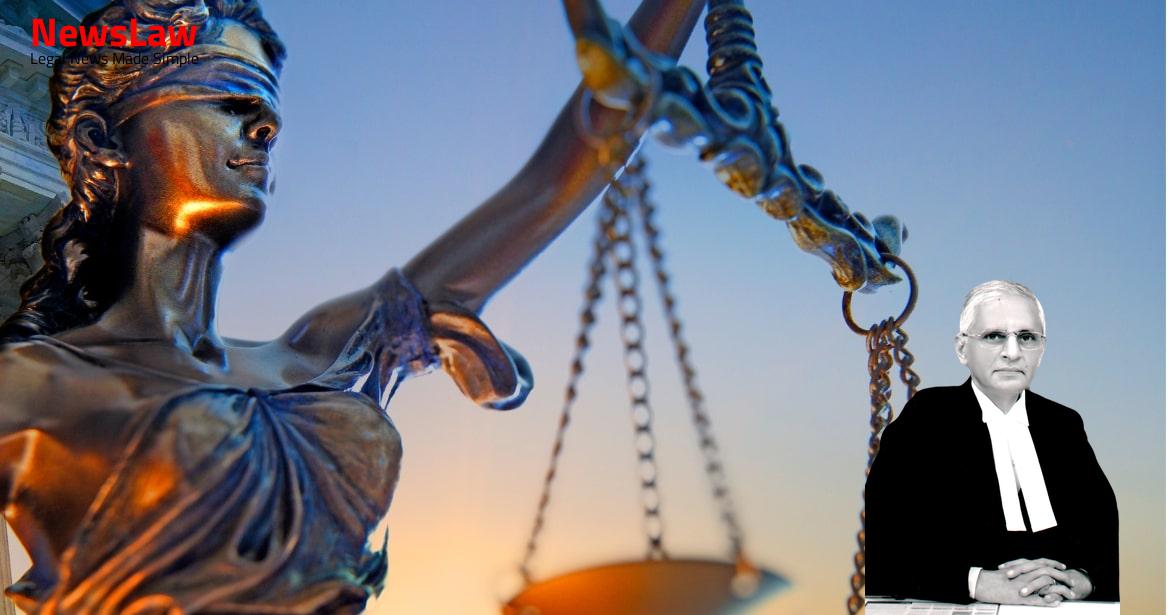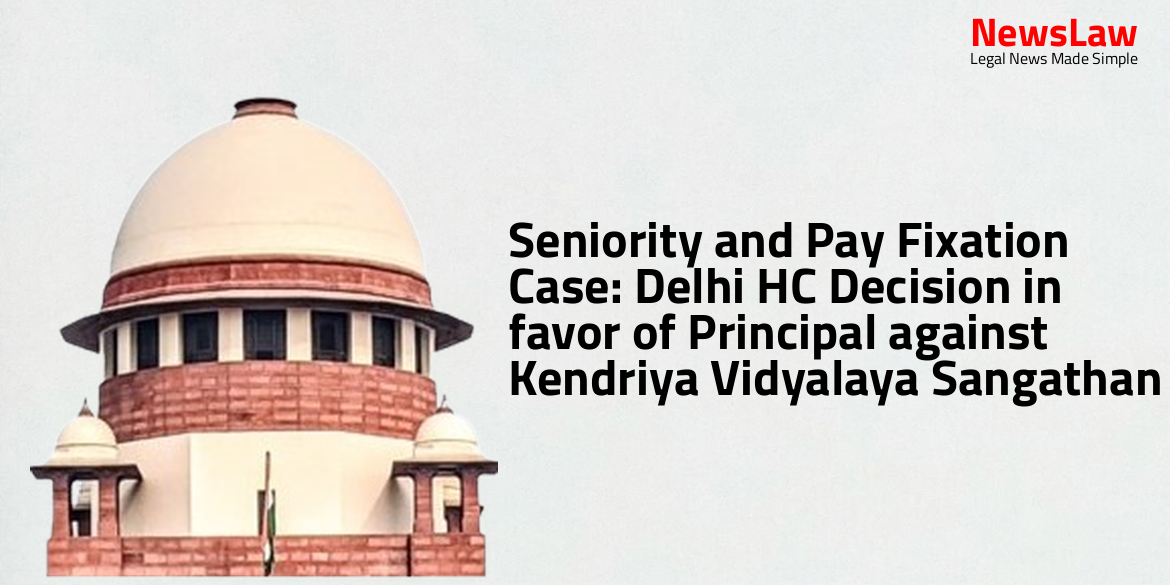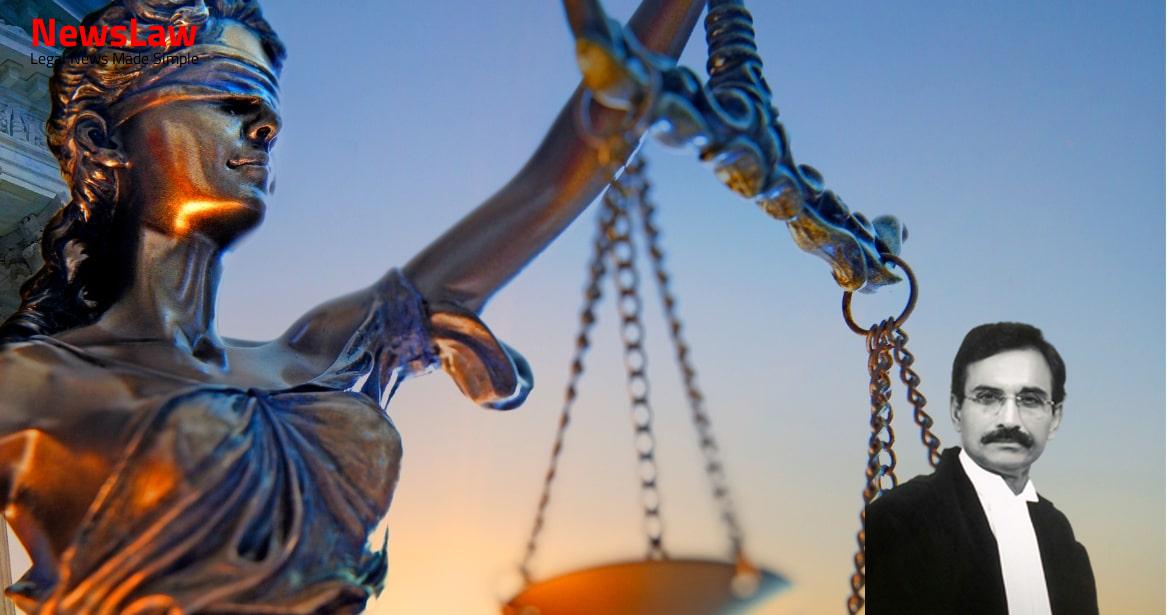Delve into the legal intricacies of a case where the court’s analysis on deemed acceptance of voluntary retirement sets a significant precedent. The judgment highlights the importance of adherence to rules regarding retirement applications and the nuanced differences between resignation and retirement in determining employee benefits. Stay tuned to unravel the complexities of this legal matter.
Facts
- The respondent’s husband initially applied for voluntary retirement, but later submitted an application correcting the error and expressing his desire to retire instead.
- No decision was made on the first application, and the respondent’s husband remained in service.
- Subsequently, on 03.05.2006, he submitted a resignation citing depression and deteriorating health.
- The respondent approached the High Court after her husband’s death seeking benefits.
- The resignation was accepted on 31.05.2006, and he was relieved of his duties with the benefits being paid.
- The husband of the respondent submitted his resignation on 03.05.2006, which was accepted by the Appellant Transport Corporation and he was relieved on 31.05.2006.
- The voluntary retirement application was not decided within the prescribed period as per the Clause 19-D(2) of the Pension Scheme.
- The respondent’s husband would be deemed to have retired even though he had moved another application terming his retirement as resignation based on legal precedent (Sheel Kumar Jain vs The New India Assurance Co. Ltd. 2012 (1) SLR 305).
- The Division Bench upheld the decision of the learned Single Judge, directing the appellants to treat respondent’s husband as having voluntarily retired and release his entitled retiral benefits.
- The main question was whether the husband of the respondent had an indefeasible right to seek voluntary retirement, and if the subsequent resignation could be considered as an application for voluntary retirement.
- The factual background showed that the respondent’s husband had completed more than 25 years of service, making him eligible for voluntary retirement.
- The learned Single Judge concluded that forcing the employee to work despite deteriorating health would be oppressive.
Also Read: Supreme Court Upholds Rejection of Plaint Under Order VII Rule 11 of CPC: A Critical Analysis
Arguments
- The respondent filed a Writ Petition before the Rajasthan High Court to claim the retiral benefits of her late husband.
- Her late husband was appointed as a conductor at the Alwar Depot of the Appellant Road Transport Corporation on 15.03.1979.
- The benefits were claimed on the grounds that her husband had voluntarily retired instead of having resigned from service.
- The respondent’s husband intended to request for voluntary retirement, not resignation.
- The Appellant Transport Corporation did not consider the subsequent application for voluntary retirement.
- The respondent’s husband was relieved from service on 31.05.2006 and received all service benefits for resignation.
- The respondent’s husband passed away on 14.04.2011.
- The respondent filed a writ petition after her husband’s death, seeking retiral benefits.
- The Single Judge referenced legal positions and Clause 19D(2) of the Rules to conclude that the application for voluntary retirement was deemed accepted.
- The directive was given for the appellants to treat the respondent’s husband as retired and pay retiral benefits.
- The respondent’s counsel argues that the deceased husband was entitled to gratuity even if it was a case of resignation, given the qualifying service.
- The appellant’s counsel states that the gratuity amount had already been paid.
Also Read: Validity of Debt and Enforcement of Section 138 NI Act
Analysis
- During the husband’s lifetime up to 14.04.2011, no issue was raised regarding voluntary retirement.
- The husband had already been issued charge sheets for misconduct before applying for voluntary retirement.
- The proceedings relating to the charge sheets were completed through a final order on 03.09.2005.
- The writ petition was filed in 2012 after the husband’s death and after the resignation was submitted on 03.05.2006.
- The resignation was accepted, the husband was relieved on 31.05.2006, and terminal benefits were paid.
- The High Court erred in assuming deemed acceptance without considering the relevant factual aspects.
- The right to seek voluntary retirement is stipulated in Rule 50 of Rajasthan Civil Services Pension Rules, 1996.
- The non-consideration of the voluntary retirement application was justified due to the completion of the inquiry and acceptance of resignation.
- Punishment of withholding increments was imposed.
- Reference made to para 9 of the writ appeal does not indicate payment of gratuity to the respondent’s husband upon resignation.
- Section 4(1)(b) of the Payment of Gratuity Act, 1972 states that gratuity is payable after 5 years of continuous service, including resignation.
- If gratuity has not been paid to the respondent’s husband, the liability to pay remains, and the respondent is entitled to receive it as per the Act.
Also Read: Enlargement on Bail in Illegal Mining Case
Decision
- The gratuity amount directed to be paid to respondent No.1 within four weeks as per the Payment of Gratuity Act, 1972.
- Pendning applications shall be disposed of.
- Appellants to calculate and pay gratuity to respondent No.1 if not already paid.
- Judgment dated 19.11.2018 in D.B. Special Appeal setting aside the order dated 01.11.2017 in S.B. Civil Writ Petition No.2839 of 2012.
- The appeal is allowed.
Case Title: RAJASTHAN STATE ROAD TRANSPORT CORPORATION LTD. Vs. SMT. MOHANI DEVI (2020 INSC 337)
Case Number: C.A. No.-002236-002236 / 2020



